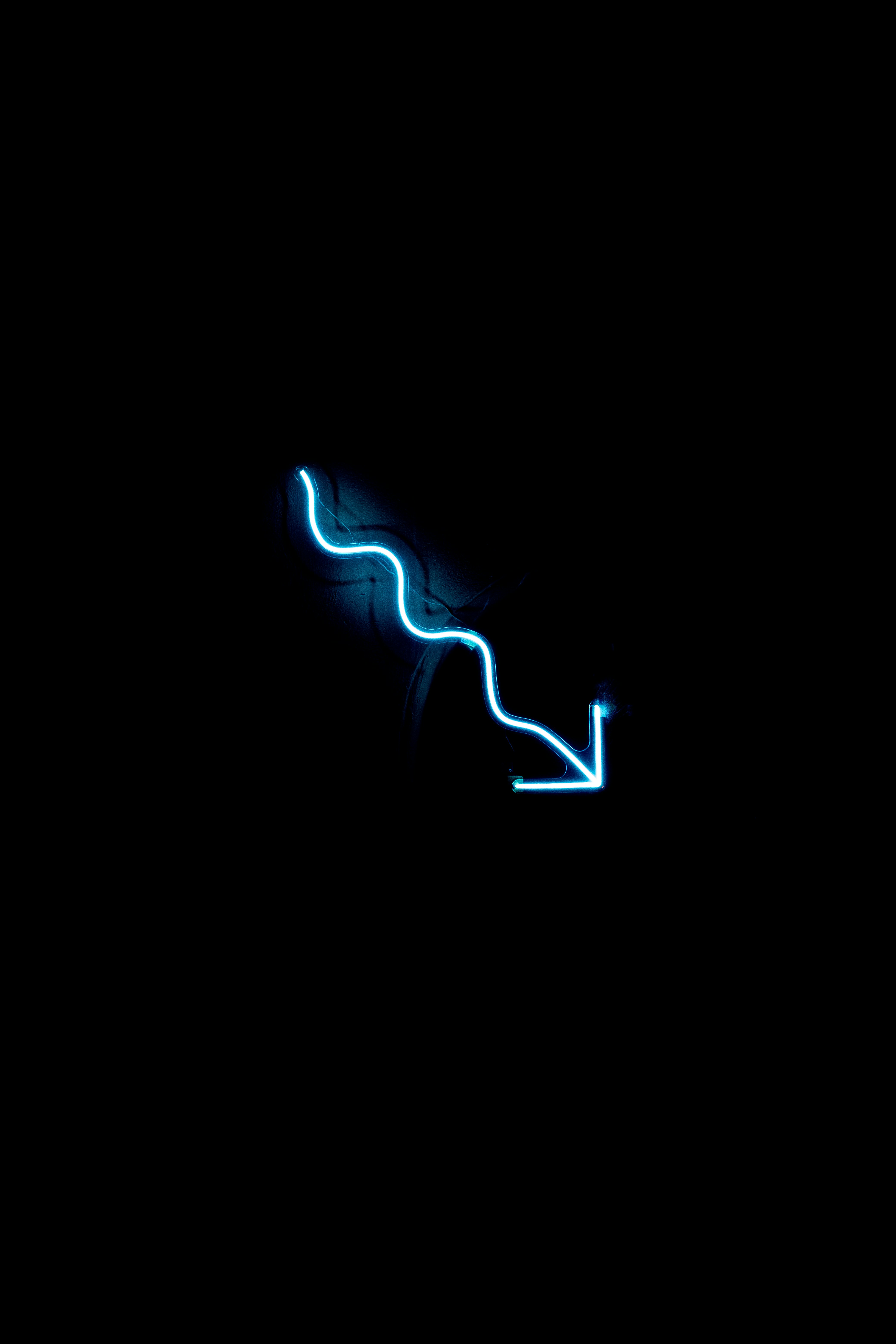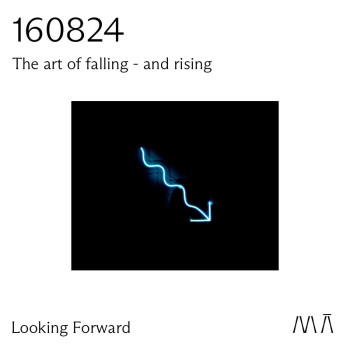The art of falling and rising
I had a bad fall. A spectacular fall rather.
The kind that makes you blink in disbelief while feeling the pulse thumping at the temples, all the while marvelling: “I’m okay. How am I okay? I’m okay.”
I felt so lucky I even played the lottery after the accident (haven't won, yet, but I hear that merely considering yourself lucky can bend the odds).
“It is in falling down that we learn almost everything that matters spiritually.” — Father Richard Ruhr.
He was right, but not in the way I expected. Falling down, if anything, will change your perspective.
After a game of tennis, I came home with two entries on my to-do list: stretch and finish this newsletter.
Enjoying high summer temperatures, I figured it was better to go straight for the yoga mat prior to showering. However, in my glistening state (a mild understatement), I reasoned I’d need a towelled surface to lay upon. I happen to own a couple of mats normally used for hot yoga, having stopped visiting the heated studio a while back: where were they again? Ah yes, all the way up in that closet, next to the equestrian gear (I should really donate these).
Feeling at once steamy and a bit high (I’d played pretty well), I reached for a sturdy-looking wicker stool, the closest implement that could help me reach the upper realms of my linen closet.
I planted my right foot right in the middle of the seat, barely registering that the material was already giving under my weight, and I sprung up. While my hands reached towards the blue microfiber mat, peaking atop a vintage beauty case (my late mother’s), I felt the stool start to tip forward, into the garments stuffed inside.
“No, nooooooooooo!” I heard myself scream. In reverse motion, my body tipped back, toward the chevron parquet floor.
Instead of landing smack on my back, my legs lifted above the stool in slow motion. I could tell that I should have made contact with the ground already.
Unbeknownst to me, the wicker seat’s forward motion was hindered by the compact mass in front, composed of a thick column of sneakers, nestled against cardigans, tops and shirts.
I was falling, yet crazily, somehow, my bum and thighs wedged themselves between the built-in legs of this minimalist wicker seat, cushioning my landing.
Thud.
Eyes wide, I stared at my shins, that were hanging over the seat, before turning my eyes upward, to the mess out in front of me. I cursed. Loudly.
Surprisingly, I was unharmed (bar a two-centimetre bruise on my right wrist, which I would only notice a day later). Meanwhile, I was royally pissed off about the deluge of footwear that had come down with me.
“Great, more cleaning ahead.” I extricated myself from this unlikely situation. Sigh. I rubbed my limbs as I got to my feet, relieved and cranky as hell.
“God, I’m so lucky. I’m SO LUCKY! Really… So lucky,” I marvelled.
I had no real safety net though my clothes and shoes would say otherwise. My dog and cats were the only onlookers. Unmoved by the event, they lay chilling (literally trying to cool down) further down the hallway.
The irony is that I’d been clearing my bedroom earlier that morning and piled up a few things to try and squeeze into the closet. In this heat, I was in no rush to get them sorted. Now, I kind of had to.
I placed the stool back in its place, under an oval mirror facing another shoe rack, this one tall, freestanding, while swearing to never use it again for anything else but a seat. I shoved the fallen items back behind the wardrobe doors, momentarily out of sight, and shuffled towards the living room. How lucky am I? I mean…
I was still sweaty and red-faced from my earlier aerobic exertions, so I put my legs up in the air again (this time on purpose, resting gently on a padded vintage seat). I let my nervous system calm down, my back on the yoga mat.
With my miraculous luck in mind, I grabbed my phone. While I let gravity ground me, I created an account with the Swiss Lotto system. There is an upcoming Euro Lotto draw, for 47 million euros. I figured if I was that lucky, why not test the odds? Perhaps fortune would smile upon me a second time.
The next day, I felt the need to tidy. Thanks to this disconcerting tumble, I found myself sitting cross-legged, on a meditation cushion (for comfort), to empty out the bottom of the closet, so I could reshuffle things to a decent enough sense of order. Scattered old tennis shoes, mismatched socks and discarded flip-flops had been gathering dust next to barely worn block-heel Prada boots and my fluffy winter slippers.
From this vantage point, looking in and up into the confined space, I realised again how much I’ve got, and how little of it I wear.
Which bears the question: how much do I need? Why do I still have ALL THESE CLOTHES? And shoes????
My life has changed a great deal in the past few years. And yes, a global pandemic, three international moves and a dog have imposed serious restrictions on what I wear every day.
Since the spring, I’ve been on a clearing spree, but here I faced the evidence: more clearing ahead.
Strangely (or not), I feel like ripping everything out and selling it. Because this, here, hanging in front of me, looks like the past.
I recently interviewed author and speaker Debjani Biswas, who wrote several bestsellers including the resonant Miserably Successful No More. Right at the end of the book, she shares a stanza from the poet David Whyte, on reaching the end of the Camino De Santiago pilgrimage in Spain.
She explains:
“When the pilgrims reach the end of their journey at the water’s edge, many take off the boots that served them so well in the past and put on a new pair of shoes for this next path forward.”
She went on to read Whyte’s poem, Finisterre.
“The road in the end taking the path the sun had taken,
into the western sea, and the moon rising behind you
as you stood where ground turned to ocean: no way
to your future now but the way your shadow could take,
walking before you across water, going where shadows go,
no way to make sense of a world that wouldn't let you pass
except to call an end to the way you had come,
to take out each frayed letter you had brought
and light their illumined corners; and to read
them as they drifted on the western light;
to empty your bags; to sort this and to leave that;
to promise what you needed to promise all along,
and to abandon the shoes that had brought you here
right at the water's edge, not because you had given up
but because now, you would find a different way to tread,
and because, through it all, part of you would still walk on,
no matter how, over the waves.”
Here I am. Only slightly bruised and awakened to the fact that I too need to sort this and leave that, as if I’d reached the end of my own pilgrimage.
Life is full of transition periods, the challenge of consistent change, releasing the old, making room for the new.
Things tumbled down around me, yet I’d fallen into place, as always, finding myself to be exactly where I needed to be.
It’s not that I’m weary about what I need to let go of — I find satisfaction in the clearing (once the messy part is done).
Until my tumble, I hadn’t wanted to see I’d come right to the water’s edge, ushering a new beginning.
I’m pondering the new shoes and how I will “walk on, no matter how, over the waves”. Reflection:
Reflection
If this essay resonates with you, consider pondering on these questions, borrowed from Debjani’s book:
What are the boots that have served you well and are no longer needed?
How will you discard them to make space for your new path?
What will your new shoes look like?

